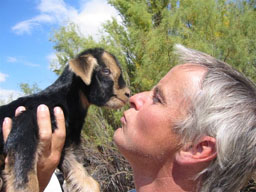The Gurney Institute Mission
Our Mission:
 We teach people how to awaken their natural ability to hear and speak with animals, how to recognize when the communication is real, and how to apply the information received. The Institute provides training and resources for beginners, advanced and those seeking to become professional animal communicators.
We teach people how to awaken their natural ability to hear and speak with animals, how to recognize when the communication is real, and how to apply the information received. The Institute provides training and resources for beginners, advanced and those seeking to become professional animal communicators.
Our Vision:
The Gurney Institute of Animal Communication is an internationally recognized educator whose purpose is to raise the world’s awareness that the ability for humans and animals to communicate with each other exists. We want to change how the world thinks and feels about animals.
Our Purpose:
To help people understand the depth and breadth of who animals truly are and why they are here which empowers all living beings to learn from one another and peacefully co-exist.
Our Goals:
Inform and educate all of society about the benefits of animal communication so everyone can learn who animals truly are and discover the gifts they have to offer us.
Reveal every animal’s authentic voice, helping them to be better understood and respected.
To be the leader in the field of Animal Communication, and set the Industry Standard for legitimate, ethical and authentic interspecies communication.
Provide the HeartTalk Customized Educational Series, the world’s most comprehensive course of study for animal communicators.
Provide a team of Certified Consulting Associates to those needing consulting services for their animals.
Develop specific education programs for those working in animal-related fields so they can become even more effective.
Provide a variety of ways for individuals to learn how to communicate with their own animals, including workshops, webinars, teleclasses, teleconferences, CD’s and books.
Become the world’s most comprehensive resource for all matters related to authentic Animal Communication.
The Gurney Institute: Teaching and using the language of animals
Many of us share our lives with animals. We take care of them, and enjoy their companionship. But there is much more we can discover from our animals. Our relationships with these wise and loving creatures can be so much deeper and richer when we learn who they really are and what they have to tell us. When we use the language of animals, we can also make our animals’ lives better: behavior and physical problems can be understood and addressed, unnecessary euthanizations can be avoided, and we can keep animals out of shelters.
Here are a few stories we’d like to share with you:
 Timmy, a 23-year old Thoroughbred, suddenly developed narcolepsy, stopped eating and had become violent and unsafe to be around. No one, including his vet, could help him, and his person, Deni Bator, was about to have him euthanized. As a last resort, her vet suggested she call Carol Gurney. Through talking with Timmy, Carol found he was mourning the loss of his stable mate, Delight, who had recently died. Timmy did not know what happened to her; he was kept apart when she died, and he also felt his life now had no purpose. Knowing this, Carol explained this to Timmy about Delight. And Carol had Deni tell Timmy how important he was to her; that she depended on him to be relaxed and to be grounded and focused. Once Timmy knew the truth about Delight and also how important he was to Deni, he began eating, all signs or narcolepsy stopped and once again he became his calm, loving self. To see a video about Timmy’s Story, click here.
Timmy, a 23-year old Thoroughbred, suddenly developed narcolepsy, stopped eating and had become violent and unsafe to be around. No one, including his vet, could help him, and his person, Deni Bator, was about to have him euthanized. As a last resort, her vet suggested she call Carol Gurney. Through talking with Timmy, Carol found he was mourning the loss of his stable mate, Delight, who had recently died. Timmy did not know what happened to her; he was kept apart when she died, and he also felt his life now had no purpose. Knowing this, Carol explained this to Timmy about Delight. And Carol had Deni tell Timmy how important he was to her; that she depended on him to be relaxed and to be grounded and focused. Once Timmy knew the truth about Delight and also how important he was to Deni, he began eating, all signs or narcolepsy stopped and once again he became his calm, loving self. To see a video about Timmy’s Story, click here.
 Duncan, an Australian Shepherd shelter dog, finally found a loving home. He immediately attached himself to his new family, and loved to run and play with them in his yard. However, Duncan became obsessed with the coyotes in his area; he would leap over his chain link fence to chase after them when he heard them howling in the hills. His people tried everything to keep him home: higher fences, and then electrifying the fence. Nothing stopped Duncan; he was always able to get out. Sadly, his family made plans to return him to the shelter; part of their adoption agreement was to keep Duncan safe in his yard and they were unable to do this. A friend suggested working with an animal communicator, and Carol was called. Duncan told Carol his job was to protect his family; that’s why he kept chasing the coyotes: to keep his family safe. “But Duncan,” Carol told him, “if you run away to chase coyotes, then you are leaving your family unprotected and they feel very unsafe without you by their side.” That’s all Duncan needed to hear. From that day forward, he stayed in his yard, close to his people, and never chased coyotes again.
Duncan, an Australian Shepherd shelter dog, finally found a loving home. He immediately attached himself to his new family, and loved to run and play with them in his yard. However, Duncan became obsessed with the coyotes in his area; he would leap over his chain link fence to chase after them when he heard them howling in the hills. His people tried everything to keep him home: higher fences, and then electrifying the fence. Nothing stopped Duncan; he was always able to get out. Sadly, his family made plans to return him to the shelter; part of their adoption agreement was to keep Duncan safe in his yard and they were unable to do this. A friend suggested working with an animal communicator, and Carol was called. Duncan told Carol his job was to protect his family; that’s why he kept chasing the coyotes: to keep his family safe. “But Duncan,” Carol told him, “if you run away to chase coyotes, then you are leaving your family unprotected and they feel very unsafe without you by their side.” That’s all Duncan needed to hear. From that day forward, he stayed in his yard, close to his people, and never chased coyotes again.
 Animals can touch our hearts in ways no one else can. Jeff was an alcoholic. His family and friends tried to help him, but all finally gave up until Jeff was left living alone with his dog, Suzie, who began to develop seizures. Jeff loved Suzie, and would always rush her to the vets when these seizures occurred, even when it meant interrupting his drinking. Finally, it dawned on Jeff: every time he began a binge, Suzie started a seizure. This was enough to stop Jeff from drinking. Interventions didn’t work, family and friends couldn’t help, but Suzie found a way. And when Jeff finally stopped drinking, Suzie stopped having seizures.
Animals can touch our hearts in ways no one else can. Jeff was an alcoholic. His family and friends tried to help him, but all finally gave up until Jeff was left living alone with his dog, Suzie, who began to develop seizures. Jeff loved Suzie, and would always rush her to the vets when these seizures occurred, even when it meant interrupting his drinking. Finally, it dawned on Jeff: every time he began a binge, Suzie started a seizure. This was enough to stop Jeff from drinking. Interventions didn’t work, family and friends couldn’t help, but Suzie found a way. And when Jeff finally stopped drinking, Suzie stopped having seizures.
You can read more stories about The Institute’s work on our Testimonials Page.

